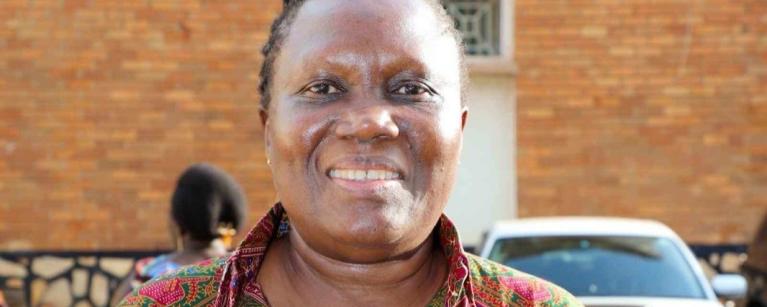Gender Equality is a human rights and development concern that we continue to address at Oxfam. Several factors lead to gender inequality. One of the major factors, is harmful social norms, what society believes should be the role of women and their place and position in society. It impacts all aspects of lives and livelihoods including the ability to live free of violence, effective leadership, SRHR and economic empowerment.
Do women have collateral? Are they able to access loans? Are they able to do business? Are they safe? How are they perceived in the world of work? Are they able to inherit property or own land? All these factors drive gender inequality in leadership.
In leadership, we see inequality through women having insufficient influence in decision-making. The ability to influence decision-making starts right from the home.
There are several barriers that limit the ability of women to attain leadership. Despite the efforts that have been put in place, such as designated seats for women in parliament and the local councils, many times women who want to stand for directly elected seats are discouraged by their communities. There is affirmative action, but there is a perception that women should be limited and restricted to designated seats only.
“If we empower women to influence decisions at home, then they can also influence decisions at the community and national level. Women must be involved in decision-making because these decisions impact their lives.”
There are also challenges around the costs of effective participation in elective leadership, and the costs of running a campaign. This is linked to women’s economic empowerment.
There are issues around women having the freedom or the capacity to leave their homes, go and engage effectively in their leadership roles. And in many instances, this becomes a challenge at the household level and within the community. There is a complexity of always navigating between one’s leadership role and the roles in the home and management of the family. It is different from what men experience.
Oxfam is committed to supporting not just leadership, but transformative leadership for women’s rights, the kind of leadership that will bring about change in the position and the condition of women.
Women’s leadership is not an end in itself. While in some instances, the numbers have been realised, because many of the targets which were set through international frameworks and enshrined in the Constitution, such as the 30% of women in leadership, have been met, we want to move beyond these targets.
“We need to see how these numbers impact the lives of women. How can we bring about change in society? How do we ensure that men are also involved because this is not only about women? Men must understand these issues and that they are part of the process of identifying solutions and driving change.”
Partnerships are very important to strengthen, work and bring about change. Oxfam works with women’s rights organisations because they’re very important in driving the change that we need to see. We also work with various stakeholders including Government MDAs, UN Agencies especially UN-Women, which is critical in driving the gender-specific policy and programme agenda.
While we work with various stakeholders we also believe in several principles. One of these principles is that we link those in the communities, and the realities of the communities with the discussions and policy engagement at various levels, national, regional and international, ensuring that the discussions are informed by the realities of those who live at the community level.
Male engagement is also very important because, in society, woman do not work on their own. We have deliberately involved men and boys because it is important. Across all our programmes, we support gender justice and women’s rights interventions, whether from the Humanitarian perspective, for instance encouraging women’s leadership in the Refugee Welfare Councils. In Resilient Livelihoods, we support women farmers in the value chain or provide them a voice to engage in various spaces.
From the perspective of governance and accountability, we mainstream issues of women’s leadership in all the work we do. In all these spaces, for a discussion to take place, it’s important to ensure women’s leadership. It’s very important to empower women. It’s very important to ensure that women are effectively participating in leadership and decision-making. This will ensure social change.

